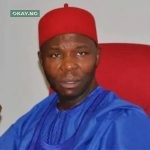The federal government has approved the payment of about N166 billion to petroleum marketers as reimbursement for the 2014 outstanding subsidy claims.
A statement issued yesterday by the Petroleum Products Pricing Regulatory Agency (PPPRA) informed that the payment made by the Ministry of Finance is for batch I to part of batch M fuel imports.
“However, the other part of batch M, and batches N, O, and P to the tune of N105 billion are still at the Debt Management Office (DMO) awaiting payment,” the statement read in part.
It added that the part payment is geared towards ensuring stability in fuel supply as well as to encourage banks and other financial institutions, which were, hitherto, reluctant to issue letters of credit to finance petroleum products importation to do so. This is even as the minister of petroleum resources, Mrs Diezani-Alison Madueke, yesterday, approved the release of the First Quarter (Q1) 2015 allocation to marketers for the importation of petroleum products into the country.
According to the PPPRA, the early release is in furtherance to the minister’s resolve to ensure continuous and robust petroleum products supply in the system with a view to sustaining the serenity in the downstream industry. Remarking on the development, the executive secretary of the PPPRA, Farouk Ahmed, while calling on motorists not to engage in panic buying, assured that, there is ample supply of petroleum products in the country, adding that discharges and truck-out had continued in spite of the holidays and the festive periods.
The PPPRA boss further explained that apart from facilitating an improved national fuel supply and stock build-up, the latest effort is also to enable marketers make adequate preparations towards products sourcing and importation early in the new year. Ahmed attributed all the proactive initiatives put in place at ensuring products availability across the nation to the support and direction of the petroleum minister and added that the PPPRA is committed to prompt processing of documents for all imported products brought into the country.
“The petroleum minister had commenced a regime of early release of quarterly PMS allocations in addition to supplementary allocations to complement the national demand,” said Ahmed. “The widely-applauded early approvals, apart from providing additional imports to supplement the prevailing stock level in the system, is now responsible for the sustained availability of petroleum products across the country at regulated prices.”West African exports got a brief boost in August when Brent’s premium to Middle East crude narrowed to less than $2 per barrel from almost $5 in June.
But with Middle Eastern producers now offering even more competitive prices, the advantage has faded.
“A year ago, a $2 premium would have been attractive, but in today’s environment it’s different,” a trader dealing with West African crude said.
West African producers traditionally sold most of their oil to North America and Europe, but exports dwindled given entry of shale oil from the United States and higher output from nations outside the Organization of the Petroleum Exporting Countries (OPEC).
West African crude exports to Asia rose more than 4 percent between January and December, Reuters data shows. China accounted for most of the rise as it took advantage of low prices to build up oil reserves.







